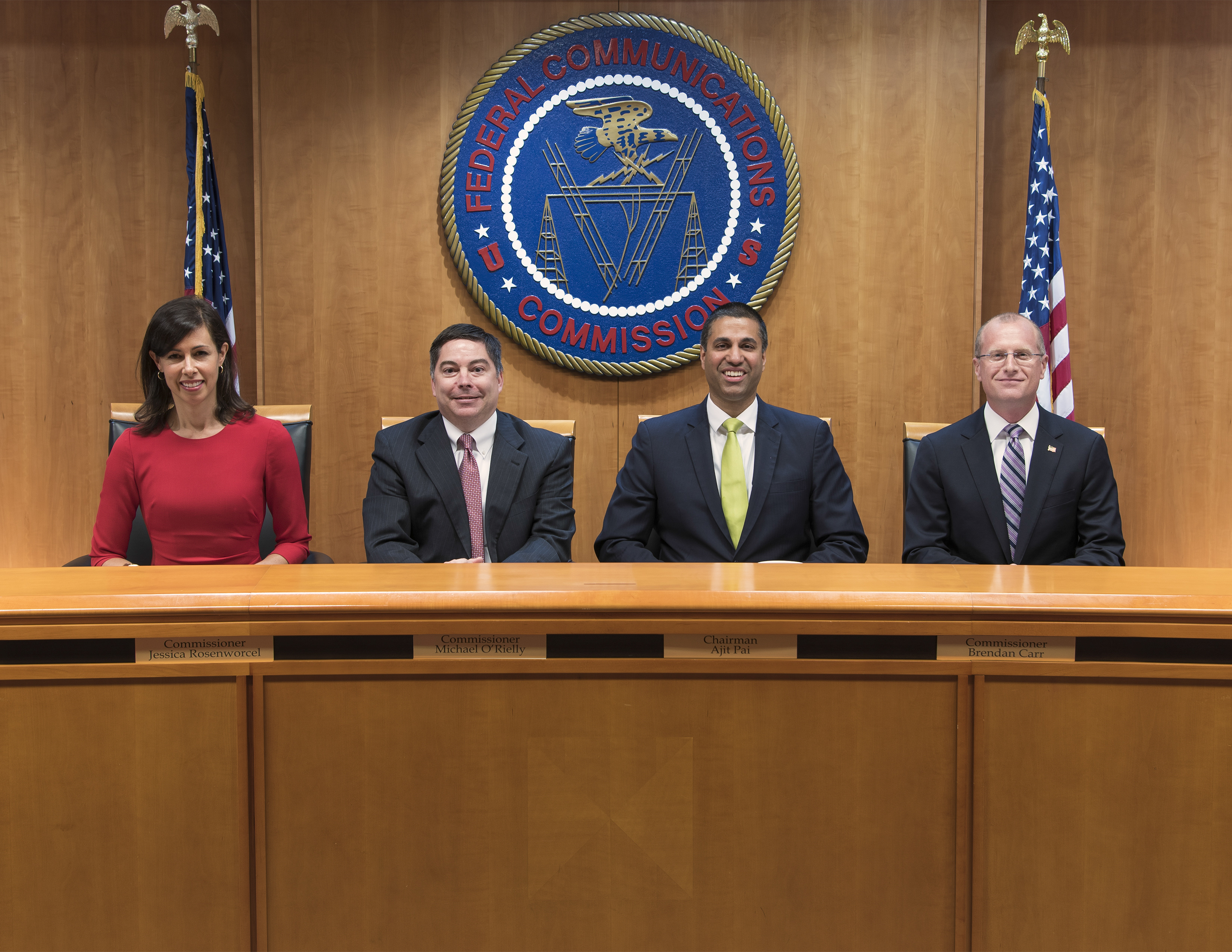
(Image Source: FCC)
The FCC on Wednesday approved an order that both limits fees local authorities can charge wireless companies for small cell deployments and imposes timelines for the approval process.
The move is part of the agency’s efforts to lower infrastructure-related barriers to help accelerate deployments of small cells and other 5G equipment for future services.
When Commissioner Brendan Carr introduced the plan earlier this month, he outlined four main parts of the proposal:
- The order maintains existing state-level legislation but bars local rules that prohibit the deployment of wireless service.
- Allows state governments to charge wireless providers fees associated with reviewing small cell deployments, but the FCC will provide guidance on specific fee levels to avoid excessive fees.
- Requires local governments to approve or disapprove small cell applications within 60 days when attaching to an existing structure, or within 90 days when the application seeks to build new small cell poles.
- Places “modest guardrails” on other local rules that may prohibit deployment, while still allowing local governments to handle aspects, like “reasonable aesthetic reviews.”
All four FCC commissioners approved the order, though Commissioner Rosenworcel dissented in part. Rosenworcel said in a statement that while she supported the shortened review time frames, Washington regulating fees and aesthetic choices amounts to “extraordinary federal overreach.”
“I do not believe the law permits Washington to run roughshod over state and local authority like this and I worry the litigation that follows will only slow our 5G future,” Rosenworcel said.
FCC Chairman Ajit Pai in a statement said many states and localities have already taken similar steps to reform their own laws, and that there are outliers “unreasonably standing in the way of wireless infrastructure deployment.”
“To be sure, there are some local governments that don’t like this Order. They would like to continue extracting as much money as possible in fees from the private sector and forcing companies to navigate a maze of regulatory hurdles in order to deploy wireless infrastructure,” Pai said. “But these actions are not only unlawful, they’re also short-sighted. They slow the construction of 5G networks and will delay if not prevent the benefits of 5G from reaching American consumers.”
The wireless industry, for its part, largely praised the order, which Carr has said will save $2 billion in unnecessary fees, generate $2.5 billion in additional small cell deployments, and create more than 27,000 jobs.
“The FCC has acted decisively to secure America’s global leadership in 5G and the innovation it will unleash across the economy,” Meredith Attwell Baker, CTIA president and CEO, said in a statement. “With the first commercial launch of 5G in the U.S. just days away, this decision will promote billions in investment and significant job creation. It creates a common sense national framework that will also enable the wireless industry to accelerate the deployment of 5G for millions of Americans.”
Not all agree, however, including some local officials, who as Bloomberg reported, previously said the rules unfairly constrain them when making deals with operators that have revenues in the billions of dollars. Watchdog group Common Cause also criticized the order.
“State and local governments play a critical role in overseeing 5G deployment and that includes the ability to assess appropriate fees to attach infrastructure on public property,” said Common Cause Special Adviser and former FCC Commissioner Michael Copps in a statement. “The FCC argues the $2 billion in cost savings will go towards bringing 5G to rural areas. But basic economics will tell you that 5G won’t come to rural America where geographic barriers and low population densities means little profit for wireless companies. The FCC’s own data shows that millions of Americans particularly in rural areas still have ‘no G.’ The FCC’s actions also hurt state and local government abilities to negotiate any public interest obligations like buildout requirements or anti-redlining provisions. This gives wireless companies even more of an ability to only deploy 5G to the richest parts of a city, leaving low-income areas unserved.”


